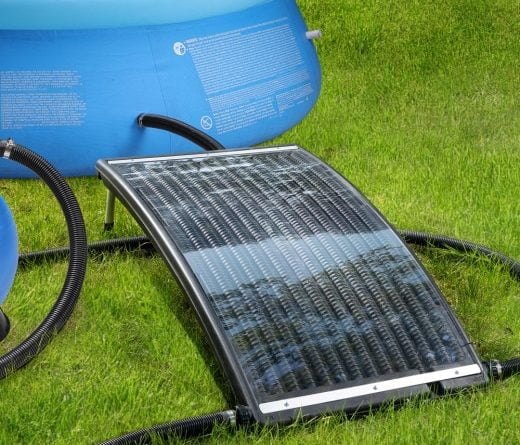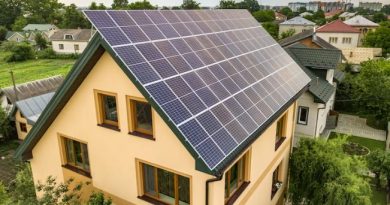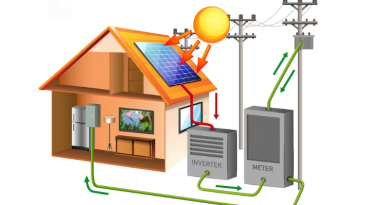How to Choose the Right Solar Pool Heater for Your Needs
How to Choose the Right Solar Pool Heater for Your Needs
A solar pool heater is a device that uses the sun’s energy to heat your swimming pool water. A solar pool heater can help you extend your swimming season, save money on your energy bills, and reduce your environmental impact. However, choosing the right solar pool heater for your needs can be a daunting task, as there are many factors to consider, such as:
- Your pool size and shape
- Your climate and location
- Your budget and financing options
- Your preferred solar pool heater type and technology
- Your installation and maintenance requirements
In this blog, we will guide you through these factors and help you make an informed decision that suits your situation and preferences.
Your Pool Size and Shape
The first factor to consider when choosing a solar pool heater is your pool size and shape. This will affect the amount of heat your pool needs and the size and configuration of the solar pool heater system.
To determine your pool size and shape, you can:
- Measure your pool’s length, width, and depth in feet or meters.
- Calculate the surface area of your pool by multiplying the length by the width.
- Calculate the volume of your pool by multiplying the surface area by the average depth.
- Identify the shape of your pool, such as rectangular, circular, oval, or irregular.
The size and shape of your pool will influence the type and number of solar collectors you need for your solar pool heater system. Solar collectors are the devices that absorb the sun’s heat and transfer it to the pool water. The more surface area and volume your pool has, the more heat it will lose, and the more solar collectors you will need to compensate. The shape of your pool will also affect how you arrange the solar collectors on your roof or ground.
According to Energy.gov, a general rule of thumb is that you need a solar collector area equal to 50% to 100% of your pool’s surface area. However, this may vary depending on your climate, orientation, shading, desired temperature, and usage patterns.
Your Climate and Location
The second factor to consider when choosing a solar pool heater is your climate and location. This will affect the amount of sunlight your solar pool heater system can receive and the temperature difference between the air and the pool water.
To assess your climate and location, you can:
- Check your area’s average daily and monthly solar radiation using online tools such as [NREL’s PVWatts Calculator] or [Solar-Estimate.org]. Solar radiation is the amount of energy from the sun that reaches a given area per unit of time. The higher the solar radiation, the more heat your solar pool heater system can generate.
- Check the average daily and monthly air temperature in your area using online tools such as [Weather.com] or [NOAA’s Climate Data Online]. Air temperature is the measure of how hot or cold the air is. The lower the air temperature, the more heat your pool will lose, and the more solar collectors you will need to compensate.
- Check the orientation and shading of your roof or ground where you plan to install the solar collectors. Orientation is the direction your roof or ground faces relative to the sun. Shading is the amount of obstruction that blocks the sun’s rays from reaching your roof or ground. The optimal orientation for solar collectors is south-facing in the northern hemisphere and north-facing in the southern hemisphere. The optimal shading for solar collectors is minimal or none at all.
The climate and location of your area will influence the type and efficiency of solar collectors you need for your solar pool heater system. Solar collectors are classified into two main types: glazed and unglazed. Glazed solar collectors have a glass covering that protects them from weather and enhances their performance. Unglazed solar collectors do not have a glass covering and are cheaper and simpler to install.
According to Energy.gov, glazed solar collectors are more suitable for colder climates where freezing temperatures are common. Unglazed solar collectors are more suitable for warmer climates where freezing temperatures are rare.
Your Budget and Financing Options
The third factor to consider when choosing a solar pool heater is your budget and financing options. This will affect how much money you can spend on buying and installing a solar pool heater system and how long it will take to recover your investment.
The cost of a solar pool heater system depends on several factors, such as:
- The size and capacity of the system: The larger and more powerful the system, the more expensive it is. According to HomeAdvisor, a leading online platform that connects homeowners with home improvement professionals, the average cost of installing a solar pool heater system ranges from $3,000 to $4,000, depending on the size of the pool, the number of solar collectors and the type of mounting system.
- The type and quality of the system: The type and quality affect its performance, durability, and maintenance. According to Energy.gov, glazed solar collectors are more expensive than unglazed solar collectors but have higher efficiency and longer lifespan.
- The installation and wiring costs: The installation and wiring costs of a solar pool heater system depend on the complexity and location of the project, as well as the labor rates of the contractor or installer. According to HomeAdvisor, the average installation cost of a solar pool heater system ranges from $500 to $1,000, while the average wiring cost ranges from $50 to $200.
Various financing options can help you pay for your solar pool heater system project, such as:
- Cash: Paying cash upfront is the simplest and cheapest way to finance your solar pool heater system project, as you avoid any interest or fees. However, paying cash upfront also requires a large amount of money that may not be available or preferable for some customers.
- Loans: Loans are borrowed money you must repay with interest over time. Loans can be obtained from banks, credit unions, or other lenders. Loans can help you spread out the cost of your solar pool heater system project over time, but they also increase the overall cost due to interest and fees.
- Rebates: Rebates are refunds or discounts offered by manufacturers, retailers, or utility companies for purchasing or installing certain products or services. Rebates can help you reduce the upfront cost of your solar pool heater system project. Still, they also require you to meet specific eligibility criteria and submit proof of purchase or installation.
- Tax credits: Tax credits are reductions in the taxes you must pay for a given year. Federal, state, or local governments offer tax credits for installing or using certain energy-efficient or water-saving products or services. Tax credits can help you save money on your tax bill, but they also require you to meet specific eligibility criteria and submit proof of purchase or installation.
Your Preferred Solar Pool Heater Type and Technology
The fourth factor to consider when choosing a solar pool heater is your preferred type and technology. This will affect how your solar pool heater system works and interacts with your pool and other devices.
To choose your preferred solar pool heater type and technology, you can:
- Compare the pros and cons of different solar pool heater types, such as direct or indirect. Direct solar pool heaters circulate the pool water directly through the solar collectors, heating it with the sun. Indirect solar pool heaters circulate a heat transfer fluid, such as water or antifreeze, through the solar collectors, heating it by the sun, and then transfer the heat to the pool water through a heat exchanger. Direct solar pool heaters are more straightforward and cheaper than indirect solar pool heaters, but they also have lower efficiency and a higher risk of freezing or corrosion.
- Compare the pros and cons of different solar pool heater technologies, such as passive or active. Passive solar pool heaters rely on natural convection to circulate the water or fluid through the solar collectors without using any pumps or valves. Active solar pool heaters use pumps and valves to control the flow of water or liquid through the solar collectors, depending on the temperature difference between them. Passive solar pool heaters are more reliable and less expensive than active ones but have lower performance and flexibility.
- Check the compatibility and availability of your desired solar pool heater system with your preferred type and technology. Some solar pool heater systems may only work with certain types of technologies or may require additional devices or apps to work with them.
- Check the reviews and ratings of your desired solar pool heater system and its type and technology. Some solar pool heater systems and their types and technologies may have better or worse customer feedback, support, or updates than others.
Your Installation and Maintenance Requirements
The fifth and final factor to consider when choosing a solar pool heater is your installation and maintenance requirements. This will involve connecting and configuring your home’s solar pool heater system and devices.
To install and maintain your solar pool heater system, you can:
- Turn off the water supply to your home before working on any plumbing or sprinkler devices.
- Follow the instructions for your specific solar pool heater system and its devices for installation and wiring.
- Use a level to align and balance your solar collectors on your roof or ground.
- Use wire nuts or electrical tape to secure the connections between the wires and the terminals.
- Test your solar pool heater system after installing and wiring.
Frequently Asked Questions (FAQs)
1. What is a solar pool heater?
- A solar pool heater is a device that uses solar energy to heat the water in your swimming pool, extending your swimming season and reducing heating costs.
2. How does a solar pool heater work?
- Solar pool heaters use solar collectors, typically installed on the roof or nearby, to capture heat from the sun and transfer it to the pool water through a circulation system.
3. What are the benefits of using a solar pool heater?
- Benefits include reduced energy bills, extended swimming seasons, environmentally friendly operation, and low maintenance.
4. Can I install a solar pool heater myself, or do I need a professional?
- While some DIY options are available, it’s advisable to have a professional install your solar pool heater to ensure proper setup and performance.
5. Are there different types of solar pool heaters?
- Yes, there are two main types: glazed and unglazed. Glazed collectors are more efficient but costlier, while unglazed collectors are more affordable and suitable for warmer climates.
6. How do I determine the right size of solar pool heater for my pool?
- The size of your solar pool heater should be based on the surface area of your pool and your desired water temperature increase. Consult a professional for sizing guidance.
7. What factors affect the efficiency of a solar pool heater?
- Efficiency depends on factors such as collector type, orientation, location, and the amount of sunlight your area receives.
8. Can I use a solar pool heater during colder seasons?
- Solar pool heaters are most effective in warm and sunny conditions, but they can still provide some heating during cooler seasons.
9. How long does it take for a solar pool heater to heat the water?
- The time required depends on factors like the collector size, sunlight exposure, and initial pool temperature but can range from a few hours to a day.
10. Do solar pool heaters require maintenance?
- Minimal maintenance is needed, such as periodic cleaning of the collectors to remove debris and checking for leaks in the system.
11. Are there government incentives for installing solar pool heaters?
- In some regions, there may be tax incentives, rebates, or grants to encourage the installation of solar pool heaters. Check local regulations and incentives.
12. Can I use a solar pool heater combined with a traditional one?
- Yes, many pool owners use a solar pool heater as a primary heating source and a traditional heater as a backup for cloudy days or when extra heating is needed.
13. How can I ensure the longevity of my solar pool heater?
- Regular maintenance, timely repairs, and proper winterization can help extend the lifespan of your solar pool heater.
14. Are there warranties for solar pool heaters?
- Yes, most reputable solar pool heater manufacturers offer warranties, which can vary in length and coverage. Be sure to understand the terms of the warranty before purchase.
15. Can I retrofit an existing pool with a solar pool heater?
- Yes, it's possible to retrofit an existing pool with a solar pool heater, but the installation process may vary depending on your pool's configuration and the chosen system. Consulting a professional is recommended.



